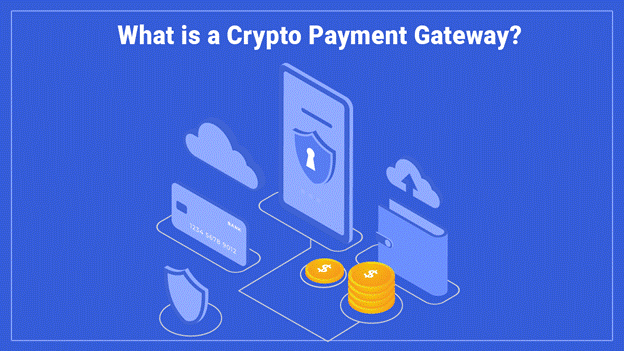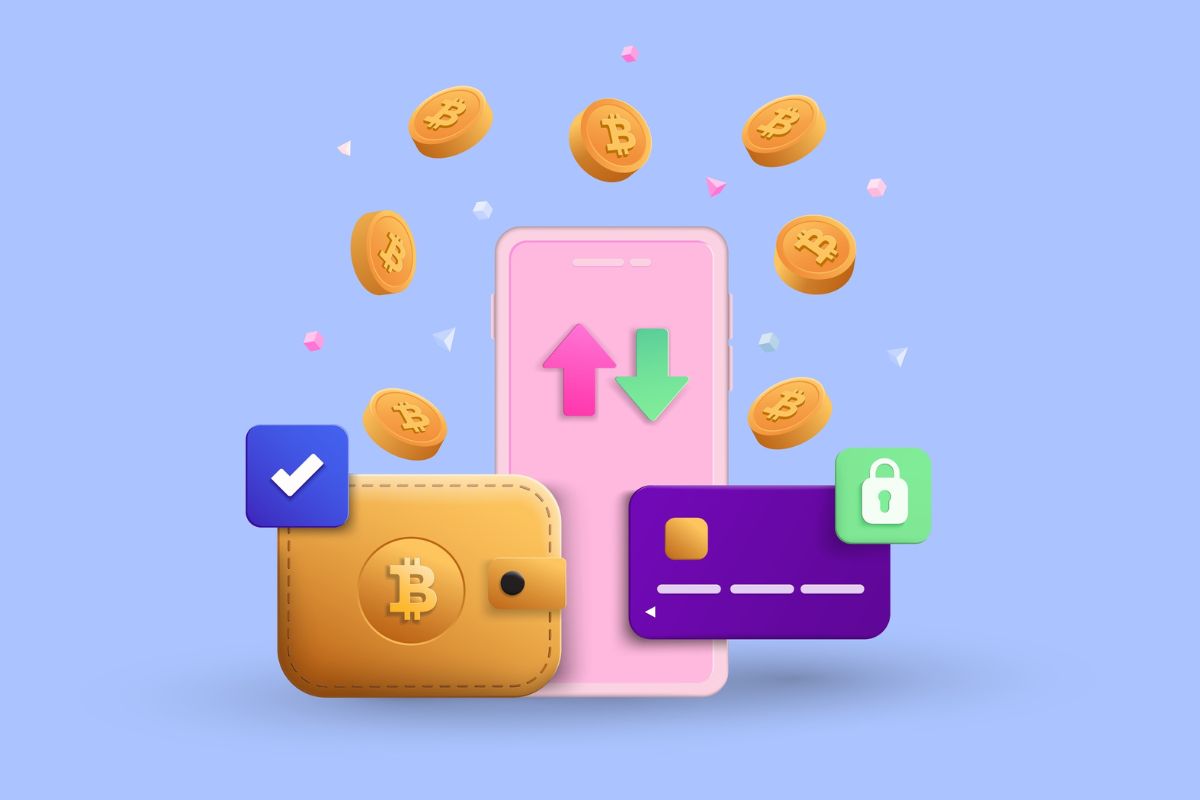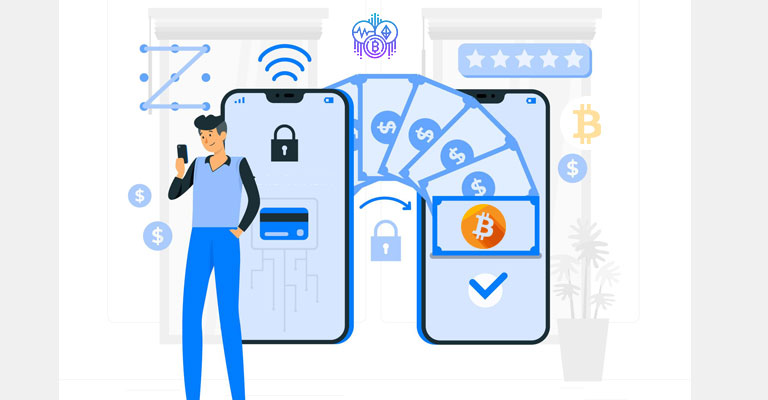In today’s digital age, you might have heard about Bitcoin or cryptocurrencies.
But have you ever wondered how businesses accept these digital coins as cryptocurrency payments?
Enter the cryptocurrency payment gateways.
As you use a credit card terminal at your local store, payment gateways allow you to process and accept cryptocurrency payments.
And trust me, understanding them isn’t as complex as it sounds.
Stick with me, and I’ll guide you through the ins and outs of crypto payment gateways, like revealing how they’re transaction facilitators between merchants and customers and how they think about commerce.
Ready to dive in?
Let’s get started!
What are Crypto Payment Gateways?
Imagine a bridge connecting the traditional financial world with the innovative realm of cryptocurrencies.
It’s a crypto payment processor that enables businesses to accept cryptocurrency as payment for goods or services.
Unlike traditional payment systems that deal with fiat currencies (like Dollars or Euros), these gateways and merchants can receive digital coins such as Bitcoin, Ethereum, and many others.
Now, you might be thinking, “Why is this necessary?”
Cryptocurrencies operate on decentralized networks, meaning they work without the need to rely on central banks or financial institutions.
This is where crypto payment options come into play.
They act as middlemen and transaction validators, facilitating the smooth transition of cryptos between buyers and sellers and ensuring that transactions are secure, fast, and efficient.
And as we delve deeper, you’ll see just how transformative they can be.
How Crypto Payment Gateways Work
First, the bitcoin payment gateway steps in when a customer chooses to initiate the transaction with cryptocurrency.
It provides a unique address generated by the crypto payment gateway (often in a unique QR code) that customers can scan for payments in cryptocurrencies.
Sounds simple, right?
Once the payment is confirmed after the checkout page, the intermediary can debit the cryptocurrency from the customer’s crypto wallet, and the transaction gets converted into fiat funds, like Dollars or Euros, if the merchant prefers that form of payment.
This is a game-changer for many businesses, as it shields them from the volatility risk of cryptocurrencies. They receive fiat and get the exact amount they are charged without cryptocurrency market risks.
Lastly, the settled amount is transferred to the merchant’s bank account, like any other traditional payment system or cryptocurrency wallet for their digital currencies.
Benefits of Using Crypto Payment Gateways
Well, let’s dive into the compelling benefits they offer.
1. Lower Transaction Fees: Traditional payment systems for fiat money often have hefty fees. However, crypto payment gateways typically have much lower transaction fees. This means more savings for both merchants and consumers.
2. Global Reach: Crypto payment gateways make it easy to operate an online store for a borderless transaction process and enable merchants to receive payments with cryptocurrency anywhere in the world.
3. Enhanced Security: One of the standout features of blockchain technology is its security. Crypto payment gateways provide this, offering a payment experience that’s hard to match. Digital currency payments are encrypted, transparent, and immutable, reducing the risk of fraud.
Challenges of Crypto Payment Gateways
There are both advantages and disadvantages to using cryptocurrencies as a payment method.
So, let’s peel back the curtain and look at some of the challenges.
1. Price Volatility: The prices of cryptocurrencies can be highly volatile. Today’s value might skyrocket tomorrow or take a nosedive. This unpredictability can pose risks for merchants who might receive less value than intended when they convert a digital payment to their preferred fiat currency.
2. Regulatory Uncertainty: Cryptocurrencies and secure cryptocurrency payments are still relatively new, and regulatory frameworks are involved in the process. This ever-changing landscape can make it tricky for businesses to stay compliant internationally and accept crypto payments.
3. Limited Adoption: While the crypto community is growing, it’s still a drop in the ocean compared to traditional gateway providers for fiat payments. Not every customer knows or trusts cryptocurrencies, much less make a purchase using them, potentially limiting your market reach.
Recommended Read: What is a crypto exchange?
Popular Crypto Payment Gateways
Let’s dive into some of the industry’s most popular and trusted crypto payment gateways to make things a tad easier for you.
1. BitPay: When talking about pioneers in the crypto payment space, BitPay often tops the list. Established in 2011, it offers a seamless integration process and allows merchants to accept and support multiple cryptocurrencies as payment from customers.
2. Coinbase Commerce: Coinbase, one of the largest crypto exchanges, offers a merchant solution called Coinbase Commerce. With this front-end, businesses can effortlessly accept payments in cryptocurrencies and have them converted into their local currency.
3. CoinGate: If you’re looking for versatility, CoinGate might be your best bet. It supports many cryptocurrencies and offers features like point-of-sale applications, e-commerce plugins, and even payment APIs for custom integrations.
Future of Crypto Payment Gateways
As we stand on the cusp of a financial revolution, let’s delve into the potential trajectories and innovations that could shape the future of crypto payment gateways.
1. Mainstream Adoption: As more businesses recognize the advantages of crypto transactions, we can expect a surge in mainstream adoption. Consider it: If giants like Tesla and Starbucks are already on board, how long before your local grocery store joins the fray?
2. Enhanced Security Protocols: Future gateways will likely incorporate advanced encryption techniques, multi-signature transactions, and AI-driven threat detection systems to ensure safe user funds.
3. Integration with IoT: Imagine your smart fridge making a crypto payment for the milk it just ordered for you. With the Internet of Things (IoT) merging with crypto payment gateways, such automated transactions could soon become a reality.
Recommended Read: How does a crypto exchange make money?
Conclusion
Navigating the intricate world of cryptocurrencies, you might have pondered: Where is the real value?
As unraveled in this article, crypto payment gateways are more than just a bridge between digital assets and the real world.
They’re a testament to the transformative power of blockchain technology and its potential to reshape global commerce.
In the end, whether you’re a crypto enthusiast or a skeptic, one thing is clear: Fusing traditional finance with decentralized systems is not just inevitable; it’s already happening.
As we stand on this precipice of change, imagining the boundless possibilities is exciting.
So, keep an eye on this space because the future of payments is not just digital; it’s decentralized.
And that, dear reader, is a game-changer!




